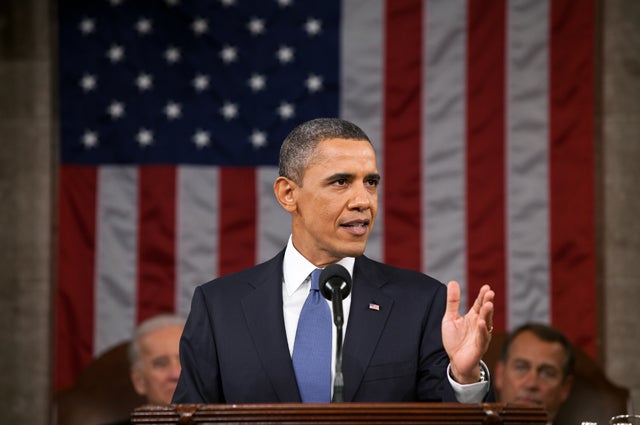A New, Green Stimulus Throughout the President’s Budget
Katie Tubb /
A closer look at President Obama’s fiscal year 2013 budget proposal shows how the White House intends to initiate a “green stimulus” through not just the Department of Energy (DOE) but other federal agencies as well.
Though not a comprehensive accounting of non-DOE energy spending, a quick survey of the President’s budget proposal reveals the following examples:
Department of Agriculture
- $6.1 billion for loans to rural electric companies that switch to clean energy generation
- $200 million toward domestic biofuel production
- $19 million to the Rural Energy for America Program for farmers and rural businesses using renewable energy
Department of Commerce
- $5 billion to the National Oceanic and Atmospheric Administration for weather and climate programs environmental research
Department of Defense
- $1 billion to improve energy efficiency in older buildings and use renewable energy in new projects
- $32 million for the Installation Energy Test Bed Program for new energy technologies
Department of Housing and Urban Development
- $100 million for the Sustainable Communities Initiative, which includes community incentives to lower energy costs and air pollution from greenhouse gas emissions
- $3 million for modeling technology to reach energy efficiency and green building goals
Department of the Interior
- $86 million for renewable energy products on federal property, especially solar, wind, and geothermal electricity generation
Department of State
- $129 million for the Global Environment Facility to provide grants to developing countries for greenhouse gas emission, ozone health, and other projects, such as biodiversity and conservation
- $13 million for the Intergovernmental Panel on Climate Change
- $8 million to the U.N. Environment Program
- $7 million to conservation programs in the funds appropriated to the President
National Science Foundation
- $355 million for clean energy research, especially solar energy and energy efficiency
- Inclusion in $203 million across agencies for research on renewable and clean energies as well as environmental and climate systems
A Green Energy Stimulus by Another Name
There are other green spending programs that do not have a specific dollar amount tied to them, but we can all rest assured that there will be costs. For example, several Environmental Protection Agency programs include initiatives to support EnergyStar programs, decrease greenhouse gases, develop regulatory programs for emissions on our highways, and research green technology.
Perhaps the energy research and technologies President Obama wants to invest in will provide “high-value jobs” and launch America as the global leader in profitable and efficient clean energy. Americans have achieved such great heights before. But that initiative belongs with the American people, not with federal departments and agencies. Efficiency should be rewarded in the marketplace with lower costs and higher productivity. Consumers and producers are fully capable of deciding which energy technologies best suit their needs.
Facing high debts and recognizing that attempts to subsidize green energy have been unsuccessful, other countries are removing funding for their green stimulus programs. President Obama, on the other hand, is doubling down.
Katie Tubb is a member of the Young Leaders Program at The Heritage Foundation. Click here for more information on interning at Heritage.

